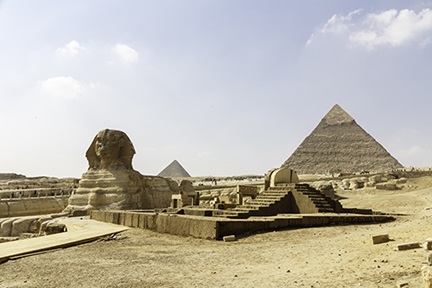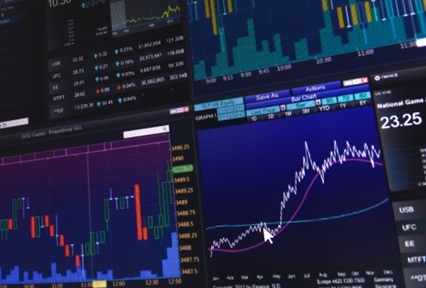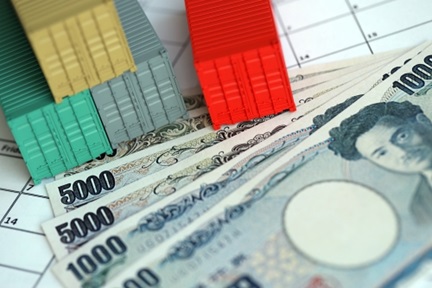Africa in the age of re-globalisation
Three recommendations on how the continent can succeed in a new economy
By Rafiq Raji and Amit Jain
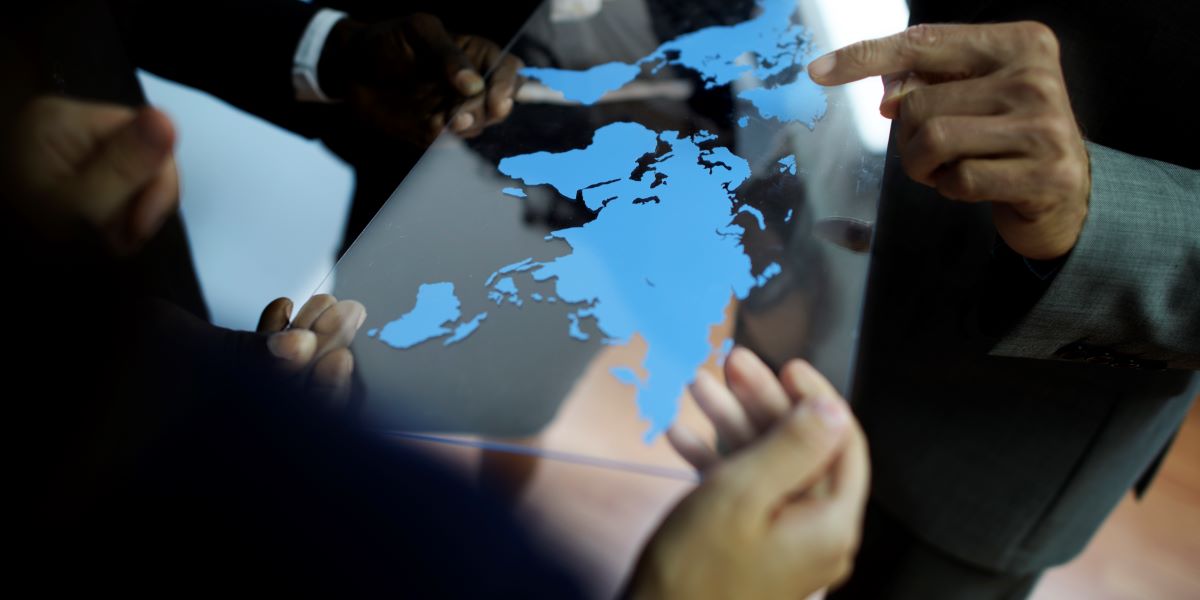
There is a gradual shift in thinking about the current international trade trend, not so much as de-globalisation but rather as 're-globalisation.' [1] As the West imposes new restrictions on trade with China and introduces measures to bring manufacturing back home, global trade has begun to realign along geopolitical lines. Import tariffs have redirected US sourcing from China to other partners, especially in advanced technology products. An analysis of trade patterns conducted by the World Trade Organisation (WTO) shows that since July 2018, bilateral trade in goods between China and the United States has grown, on average, much more slowly than the trade of each economy with other partners.
Although bilateral trade between China and the United States reached a record high in 2022 (US$691bn) [2], its composition has changed, and trade between the world’s two biggest economies is slowing down sharply, at least in some categories such as active pharmaceutical ingredients, machinery and equipment for green energy generation, semiconductors, and telecommunications equipment. The WTO warns that a 'retreat from economic integration would roll back development gains and make it harder for countries to grow out of poverty.
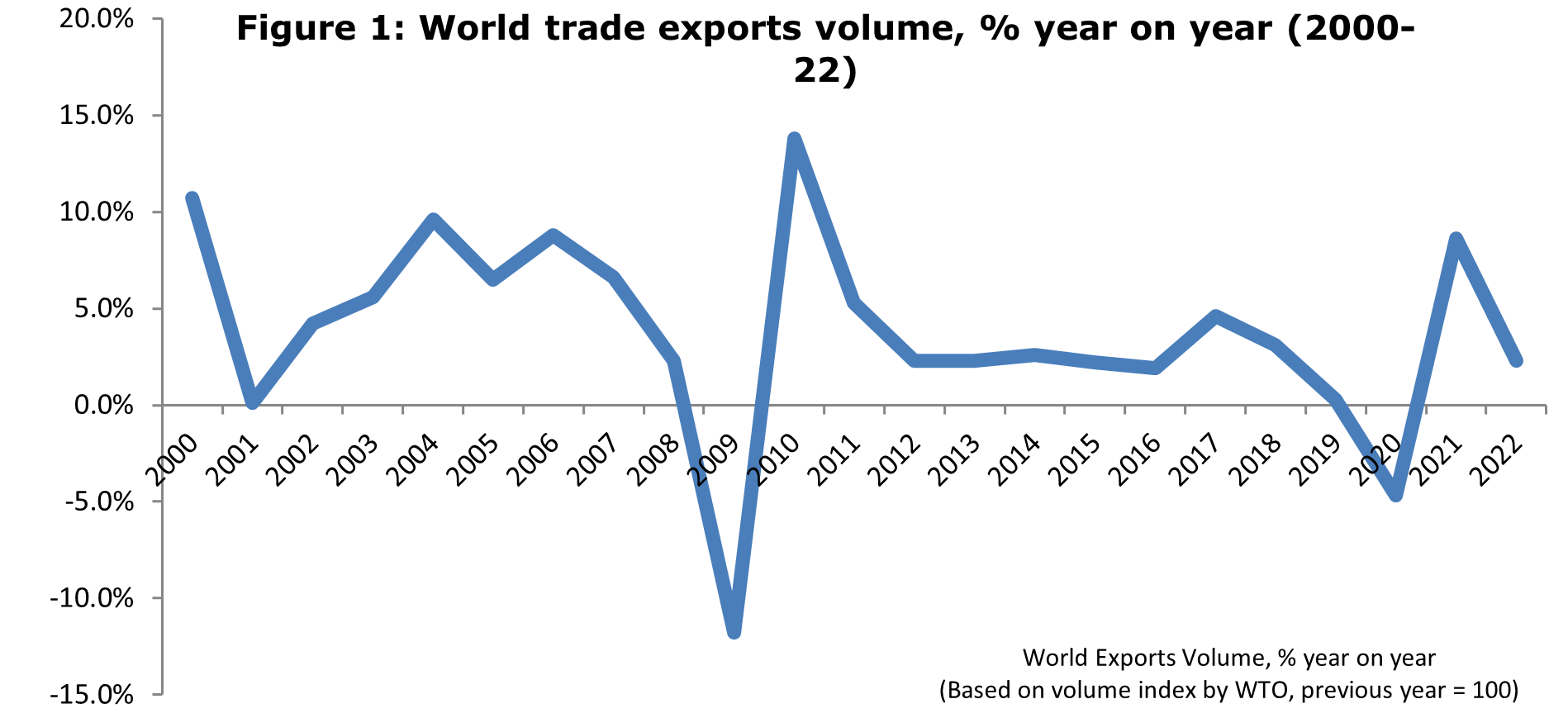
In this era of re-globalisation, African countries find themselves not only potential victims of multipolar geopolitics, as great powers vie for dominance, but also susceptible to the impacts of robots and automation. Africa lacks sufficient low-cost manpower to rival labour-surplus Asia and lacks the necessary skillset for large-scale value addition. Unless significant new investments are made to improve labour productivity, there is a considerable risk that Africa could miss yet another opportunity to reshape its destiny.
Supply chains are shifting as global trade slowly realigns along geopolitical lines. While the West, led by the US, has imposed strict controls on China, restricting its access to cutting-edge semiconductor technology over which it maintains dominance, China continues to leverage its market dominance over critical minerals as a bargaining chip to extract concessions from the West. For example, in October 2023, the United States eased restrictions on the shipment of inputs from America for semiconductor manufacturing by South Korean firms in plants based in China. [3] Even so, some of the changes during this era of re-globalisation will endure. [4]
Unlike Asia, globalisation for Africa has been synonymous with exploitation. Despite reduced trade barriers, a more conducive environment for inward investments, and the integration of financial markets, Africa has, for the most part, failed to capture the gains of globalisation in the way its former peers in Asia have managed. Since the 1980s, technological advances have dramatically reduced logistics and communication costs, enabling the unbundling of the manufacturing process. This made it possible for manufacturers to outsource some stages of production to lower-cost jurisdictions. While East and Southeast Asia moved swiftly to take advantage and climb the global value chain ladder, Africa did not. Today, Africa accounts for just 2.6% of global exports, mostly consisting of primary commodities and natural resources. [5]
According to the WTO in 2021, Africa’s exports of intermediate goods (IG) represented three-quarters of total merchandise exports from the continent and were worth US$265 billion. These exports mostly comprised primary commodities in raw or semi-processed form, destined for global production chains. South Africa is by far the biggest exporter of intermediate goods, with a share of 30.9% in 2021 (US$81.9 billion).
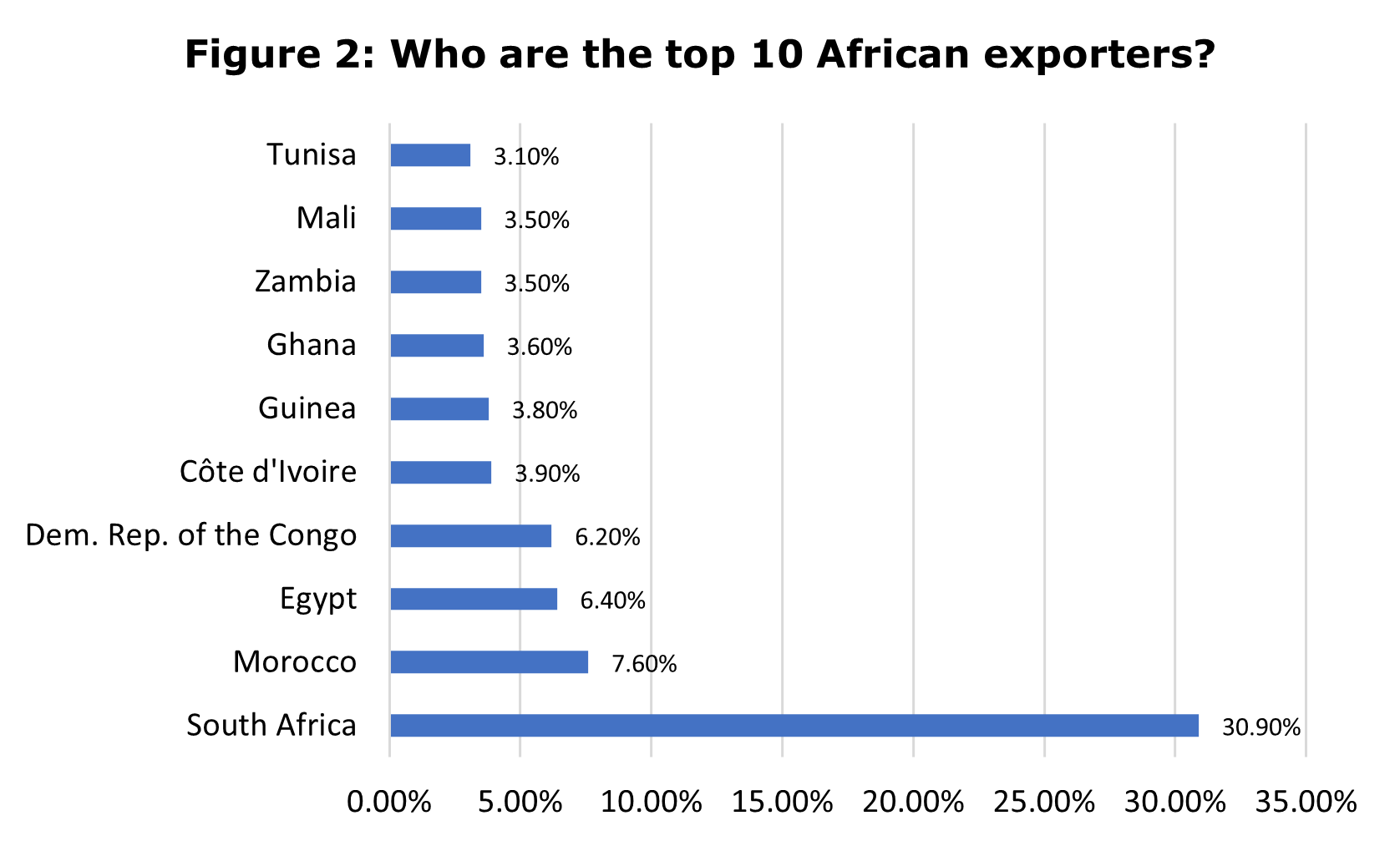
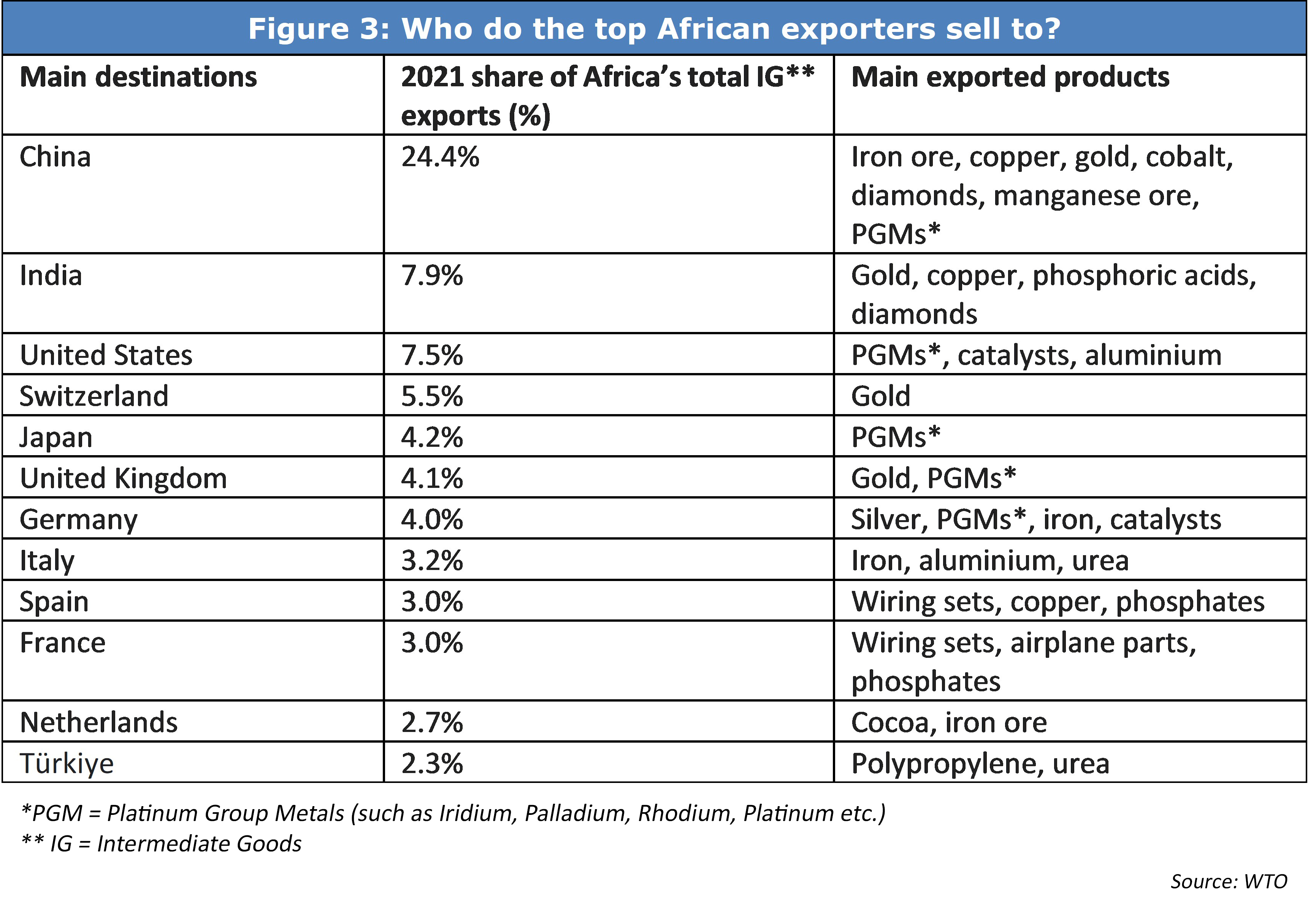
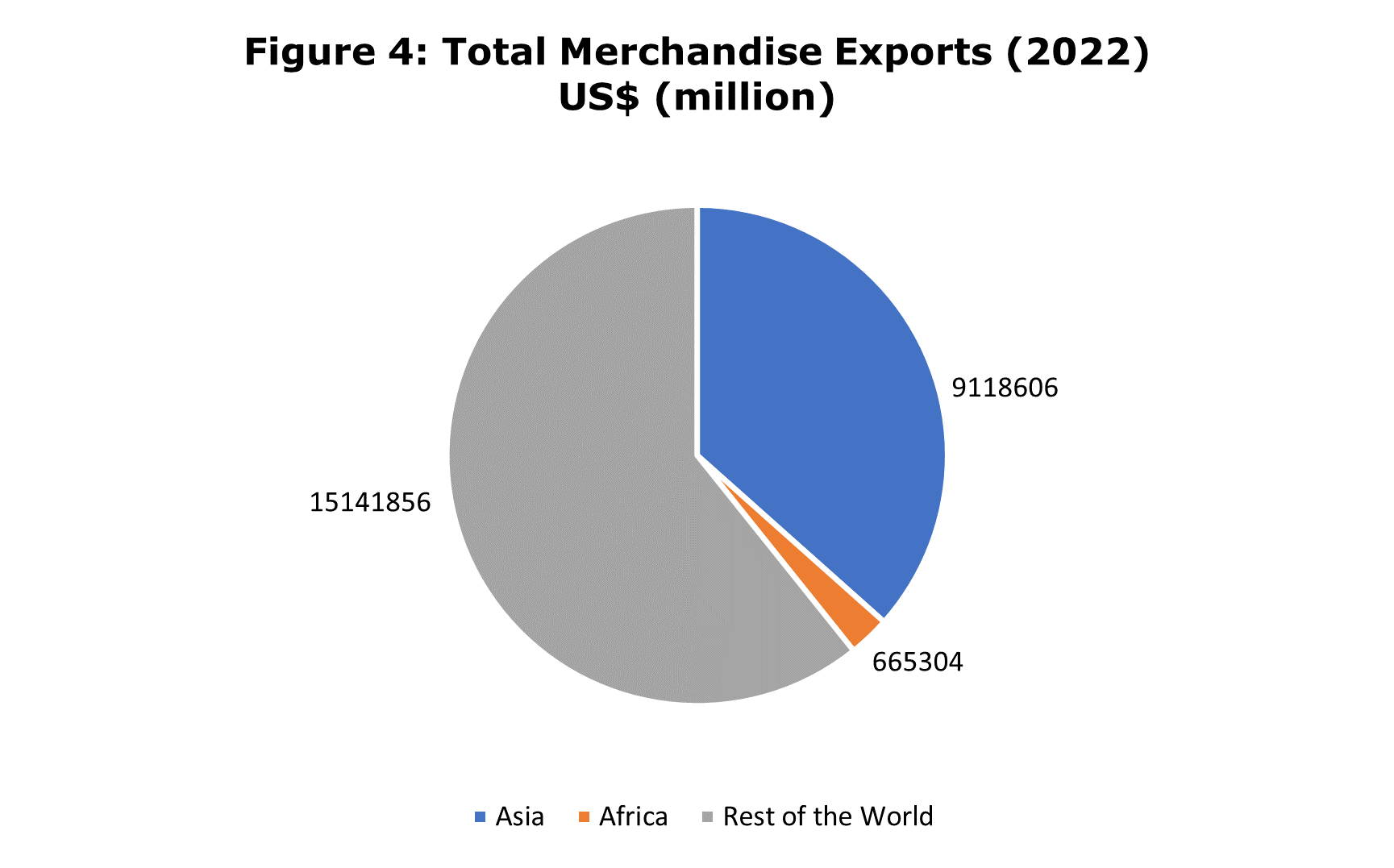

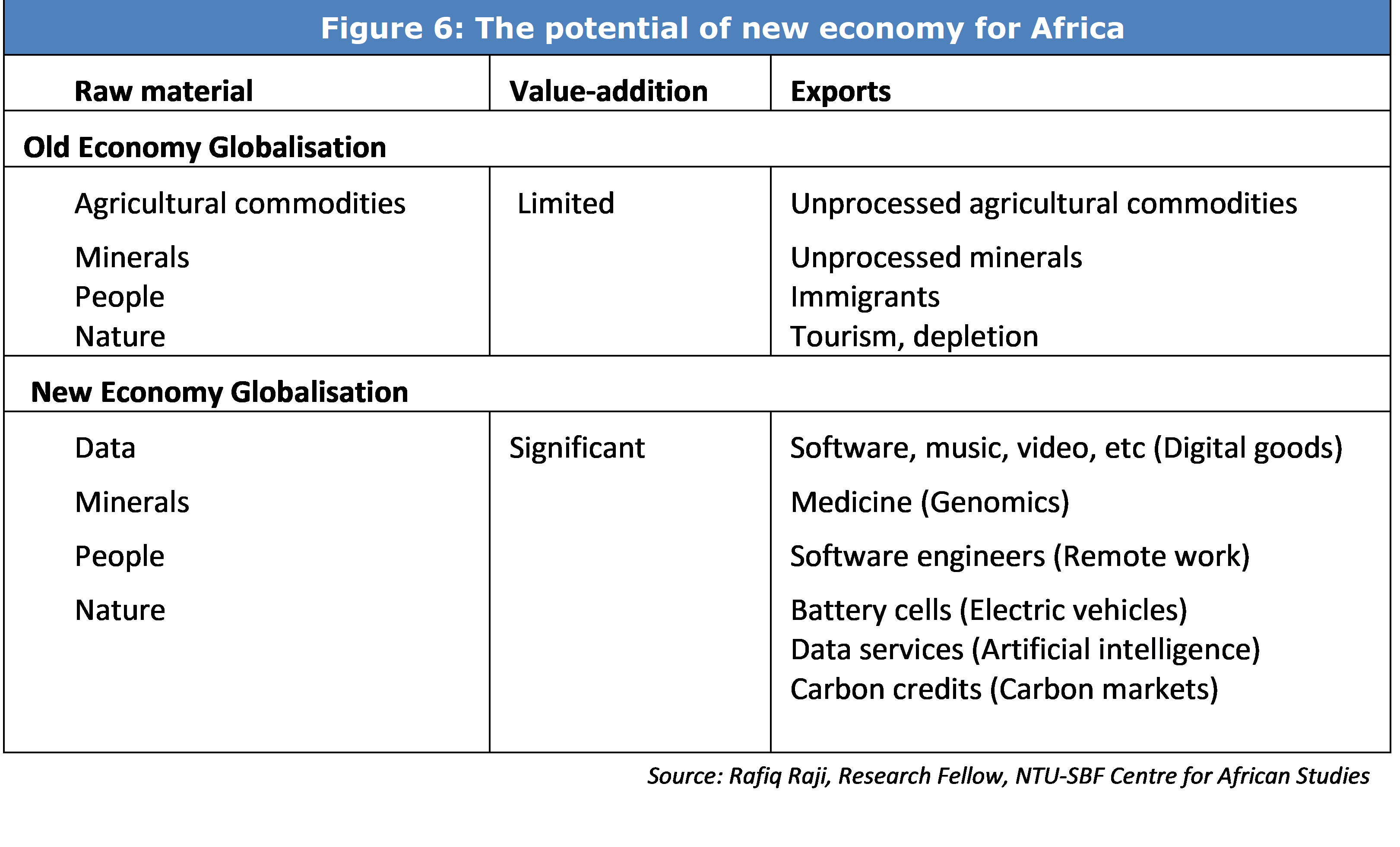 From an African perspective, we observe two eras of globalisation - An old economy globalisation in which Africa was, at best, a bystander and, at worst, a source of extraction. Then there is the new economy globalisation in which Africa need not merely be a supplier of critical natural resources but also be an active intermediary in the manufacture of finished goods and provider of services. However, to capture value out of this new economy Africa would need to engage in collective bargain, invest in human capital and position itself well as a single market to attract draw investments not merely into resource extraction but also in manufacturing. The new economy, by definition, involves “activities based on knowledge and information, rather than traditional industries such as manufacturing.”[6] Unlike the old globalisation, which largely de-industrialised African countries,[7] this new era of globalisation, centred around the new economy industries, could be a catalyst for the re-industrialisation of Africa – provided that governments are proactive and assertive in their interventions.[8]
From an African perspective, we observe two eras of globalisation - An old economy globalisation in which Africa was, at best, a bystander and, at worst, a source of extraction. Then there is the new economy globalisation in which Africa need not merely be a supplier of critical natural resources but also be an active intermediary in the manufacture of finished goods and provider of services. However, to capture value out of this new economy Africa would need to engage in collective bargain, invest in human capital and position itself well as a single market to attract draw investments not merely into resource extraction but also in manufacturing. The new economy, by definition, involves “activities based on knowledge and information, rather than traditional industries such as manufacturing.”[6] Unlike the old globalisation, which largely de-industrialised African countries,[7] this new era of globalisation, centred around the new economy industries, could be a catalyst for the re-industrialisation of Africa – provided that governments are proactive and assertive in their interventions.[8]
Intervention
Some African governments have started to introduce export bans on raw mineral exports to compel mining firms to invest in mineral processing. But such steps have so far yielded limited results. That is because processing minerals remains a highly skilled and capital-intensive exercise. The processing that is taking place is therefore early stage at the low end of the scale – like producing condensates. China retains a commanding lead on the capacity to process minerals at scale. For critical minerals like cobalt, where the DRC is the main global supplier, or Zimbabwe, which has substantial lithium reserves, strong interventionist policies such as export bans could be effective. For other battery minerals where, African countries are just marginal players, such industrial policies may not be effective.
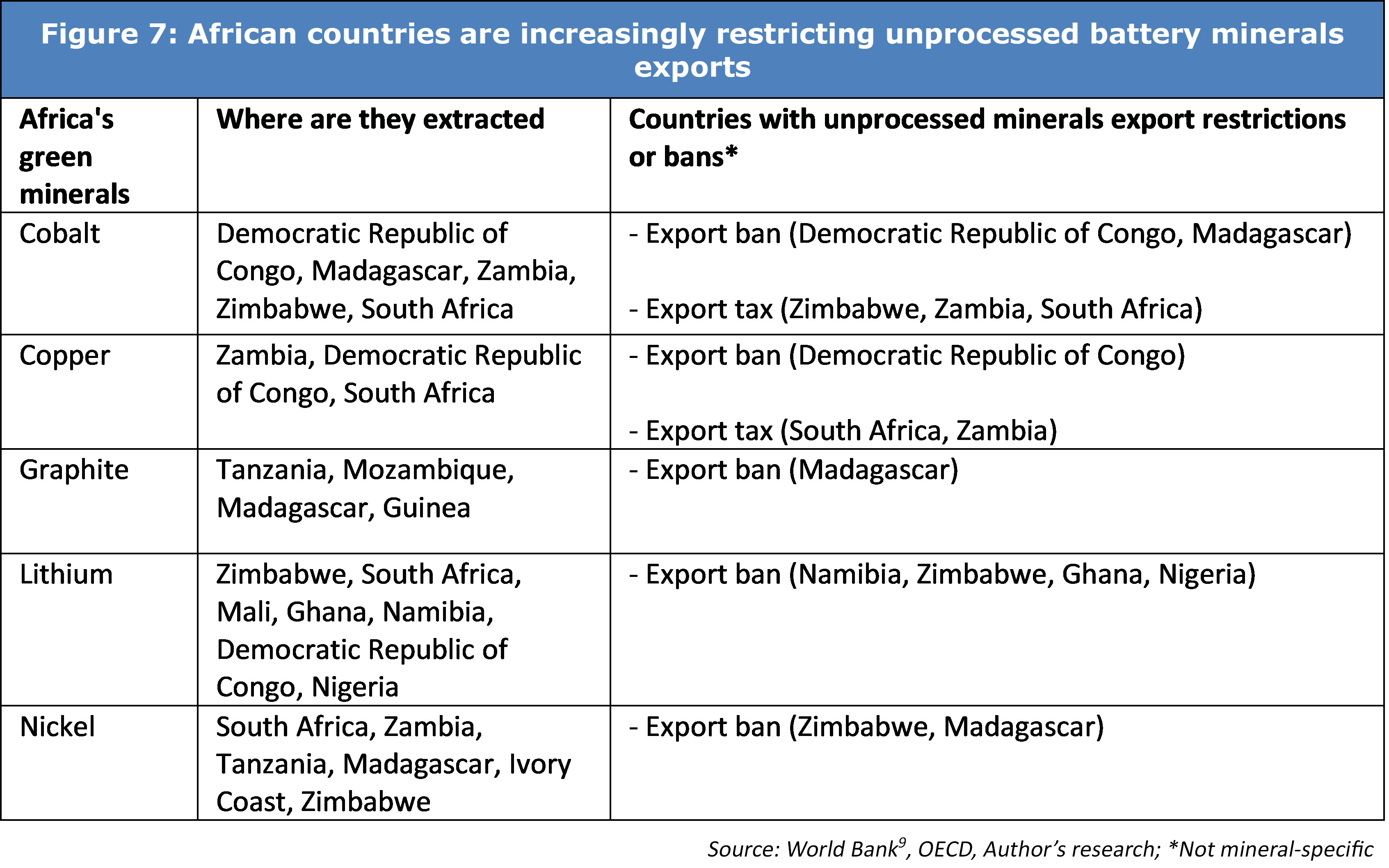
As the West doubles down on reducing its dependence on China for finished goods and revive manufacturing at home[10] African governments have an opportunity to ensure that these much sought after battery minerals will not yet again just be mined for export but processed as well.[11] Those aligned with the West could secure preferential market access and promises of funding for ambitious infrastructure projects like the US$330m Lobito rail corridor – a 13544Km long railway project that would link the copper mining belt of Zambia and Uganda to the Angolan port of Lobito.[12] In December, the US signed a tripartite memorandum of understanding (MoU) with the Democratic Republic of Congo (DRC) and Zambia to develop an electric vehicle (EV) battery value chain, where minerals are extracted and processed before shipping to customers in the US and elsewhere.[13] The UK similarly signed a deal with Zambia for clean energy minerals in August 2023, a so-called UK-Zambia Green Growth Compact that would facilitate private sector-led investments worth US$3.2bn into the Zambian minerals, mining and renewable energy sectors.[14] Despite these agreements, it would still take a while before more substantive progress is made from the MoU stage to actual battery-making.
Those more in favour of China could see more investments pouring into mineral processing as Beijing fights to retain its control on critical minerals. In July 2023, for instance, Prospect Lithium Zimbabwe, a subsidiary of Zhejiang Huayou Cobalt, a Chinese firm, opened a US$300m lithium processing plant with a capacity to process 4.5m metric tons of lithium rock into concentrate every year, albeit only 450,000 tons of lithium concentrate will be processed per year at first.[15] However, a China-owned battery mineral processing plant in an African country that employs only Chinese staff for the key technology-intense stages of production will not be particularly welfare-enhancing. True welfare-lies in value-addition through processing, transfer of technology to African firms, domestic employment, manufacturing, and exports of finished products such as batteries and EV cars from Africa to other markets.
Morocco appears to have stolen a march over other African countries in his regard. The availability of critical minerals, proximity to Europe, tax incentives and tariff -free market access to both EU and the US has seen the Kingdom emerge as a centre of the EV revolution. A key provision of the Inflation Reduction Act – a misleadingly titled piece of US legislation that is aimed at promoting green manufacturing at home - is that the US$23.4bn worth of fiscal incentives under the scheme only apply to production along the electric vehicle (EV) battery global value chain in countries with which America has an FTA, effectively making all African countries except Morocco ineligible.[16]

Morocco is the only African country to have signed an FTA with the US as well as EU. Ironically, it is this unique position that has allowed Morocco to attract investments from China. Notably, Chinese battery parts maker CNGR Advanced Material is building a US$2bn production facility in Morocco. Sino-German electric vehicle battery maker Gotion High-Tech also plans to build a US$6bn factory in Morocco to produce electric car batteries and energy storage systems. Youshan, a Chinese cobalt refining subsidiary is working with LG Chem of South Korea to build a lithium iron phosphate (LFP) cathode materials plant in Morocco for the US market. [17]
Even if resource-rich African states are unable to replicate Morocco's success, they should, at the very minimum, possess the capability to export refined mineral products, much like South Africa does with platinum, for example.
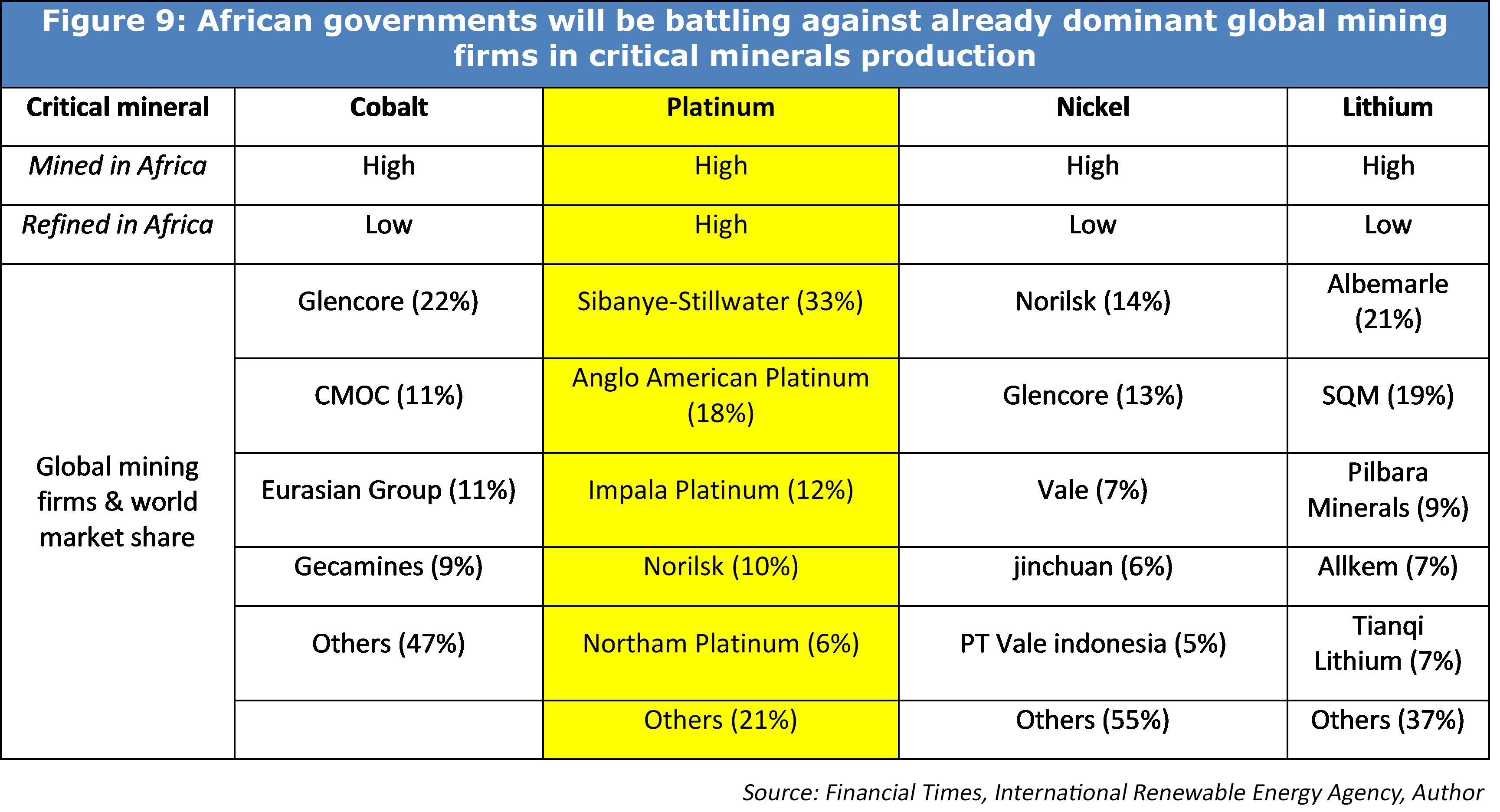
While it may be tempting to seek short term advantage in this emerging great power rivalry Africa will not be able to end its colonial-era dependence on natural resource exports unless it can generate a domestic demand large enough to make mineral processing viable all along the value chain. Take Indonesia, for example. Its export ban on unprocessed nickel in 2020 saw a 30-fold increase in the nominal value of its nickel-based exports and US$14bn in incremental smelter capacity investment mainly because its own domestic market of electric cars is large enough to justify such investments.[18] Africa is not yet a single market (although it is very well on the way to becoming one). The day that happens investors would be vying with each other to set up processing units all over the continent. There is therefore, much riding on the success of the Africa Continental Free Trade Area (AfCFTA).
In the age of new globalisation, the old model of low-cost manufacturing growth may not work. With AI and robotics driving down unit cost of repetitive output at accelerated speed the demand for low-cost low-skilled workforce is likely to shrink. There is already excess manufacturing capacity available in Asia that can meet the global demand for cheap garments, shoes, electronics, and white goods. It would be difficult for Africa to compete with Asia on labour cost. Where it should try and compete is over talent and productivity. But to be able to do that it needs to invest in improving human capital. In Africa, only 11% and 23% of all 15–24-year-olds have basic secondary literacy and numeracy skills, respectively. On average African governments spend no more than 10% of their annual budget on education. And when it is indeed spent only 10% of the education resources reaches the poorest quintile.[19] Higher public spending on education will yield a productive workforce that can be absorbed in the new economy.
Digital Economy
A re-globalising world provides Africa with a new opportunity to leverage on the rise of its digital-active youthful population. In a world where the labour force in the rich North is shrinking, Africa stands to benefit. [20]
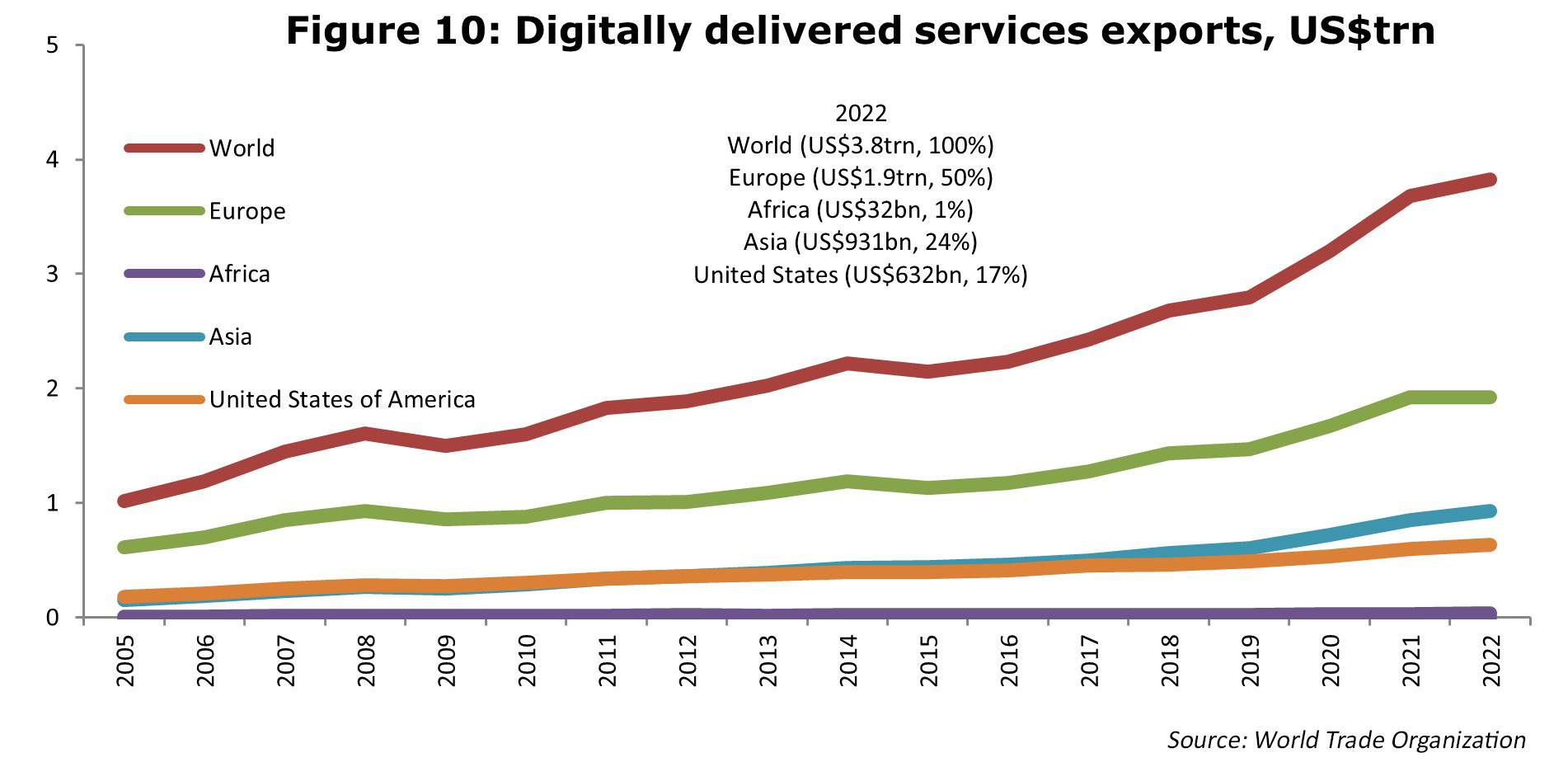
The internet has been a revolutionary tool in the hands of many young Africans.[21] New business models are emerging from the disruption of legacy systems by the internet in ways that are enabling entrenched constraints, ranging from bureaucracy, corruption, to infrastructural deficits, to be overcome much more easily. Cross-border payments can be done digitally from mobile phones, businesses can place orders from their internet-enabled smartphones, video calls reduce the need for international travel and onerous visa requirements that Africans face, there is a wider global customer base owing to the internet, and Africans can do digital services-related work in the gig economy, which involves task-based short-term jobs (as opposed to full-time jobs), from their home countries. With music and video available on demand on streaming platforms, African creative types also now have unfettered access to a global audience.
Cloud computing also enables what could have been data-related infrastructural constraints for delivering digital services in an otherwise hugely infrastructurally constrained continent like Africa to be overcome.[22] While most African companies currently rely on foreign-based or foreign-owned data centres, there are increasing moves for more locally based ones. Progress remains slow, however. In its 2023 Africa Interconnection Report, the Africa Data Centres Association finds the number of carrier-neutral data centres on the continent has increased to 50, from 20 previously, with planned new ones up to 68, from 15 hitherto.[23] However, much of the incremental capacity is still being largely built in South Africa. Unsurprisingly, South Africa is the only sub-Saharan African country that has surpassed the 100MW key power consumption threshold for a carrier-neutral data centre. Local data centres will be key to ensuring robust African participation in the rapidly growing field of artificial intelligence (AI), which allows more human-like tasks to be done by machines, with increasingly little to no human supervision. Africa has been late to catch up to artificial intelligence, however, with much of the data that currently power machine learning globally having limited African inputs.[24]
But even for the simpler activities in the global digital economy, Africa remains a fringe player. For example, Africa’s share of global information and communication technology (ICT) imports is less than 5%, according to data by the United Nations Conference on Trade and Development (UNCTAD) for 2021.[25] Slow internet speeds and expensive smartphones continue to be constraints on fast broadband adoption on the African continent. 5G mobile technology and increasingly affordable smartphones will expectedly allow for these constraints to be overcome, albeit it may still take a long while still.[26] African fintech is also opening up the financial space to many Africans who were otherwise shut out, as smartphone ownership rises, the internet is relatively faster and cheaper, and more African cities urbanize.[27] Blockchain and cryptocurrencies go even further to break the myriad bureaucratic barriers to African international trade, as the experience during the Covid-19 pandemic shows.[29] It costs about the same amount of time and resources to provide credit to small as well as big businesses. Consequently, traditional banks generally prefer to extend credit to big-sized firms. Fintech is making what had otherwise been a very challenging task of extending credit to SMEs much more manageable.[29] Genomics research could also be another source of comparative advantage, as the African genome has been found to offer unique opportunities for groundbreaking pharmaceutical breakthroughs, especially as the growing field is largely data-based and relies a great deal on information and communication technology.[30]
A key exigency on global digital trade for African countries, that is, apart from the industrial policy imperatives for their digital economies, is the WTO moratorium on the imposition of custom duties on electronic transmissions in place since 1998, which is due for review at the upcoming 13th WTO ministerial conference (MC13) in February 2024, after it was last extended at the previous conference (MC12) in June 2022.[31],[32] It is imperative that African countries insist on another extension of the moratorium in order to ensure global digital transactions remain tariff-free, as this is one of the fundamental foundations of the cost efficiencies of the digital economy. An already digitally infrastructure-constrained and mostly poor African continent can ill-afford another cost component being added to its international digital trade, as this will effectively shut out the many small businesses that power most of its economies.
African countries will need to upgrade digital infrastructure and digital skills if their citizens are to compete in the digital economy. Even here Africa is a theatre of competition between China and the West. While China is investing in building hard digital infrastructure, the West is promising digital skilling and software. The Digital Transformation with Africa Initiative (DTA) was launched by the United States in December 2022 to help bridge the African digital divide by facilitating the expansion of the continent’s internet infrastructure, from submarine cables, data centres, to local manufacture of smartphones, as well as supporting the thriving digital innovation ecosystem on the continent and facilitating US-Africa integration of digital services and commerce.[33] Via the DTA, and in alignment with the African Union’s Digital Transformation Strategy (DTS), the US plans to invest more than US$350m and facilitate financing of more than US$450m to enhance digital access and literacy, as well as improve the digital enabling environments in African countries.[34] As of 2023 the US has invested US$82m in DTA projects and set up a data centre in Ghana, and financed another one in Kenya. The US Export-Import Bank (EXIM) is financing a 500MW Angolan solar energy project worth US$900m.[35] The EU has instituted an Africa-EU Green Energy Initiative for green economy opportunities on the continent, as well as a Digital for Development for Digital Economy and Society in Sub-Saharan Africa (D4D) programme. Yet, western initiatives in improving the African ICT sector trails Chinese domination (Raji, 2023). Under the China-Africa Partnership Plan on Digital Innovation, China has been investing in improving the backbone telecom network and its digital infrastructure for years. Much to the chagrin of the West, nearly 70% of the 4G network in Africa is built on technology developed by Huawei and its subsidiaries.[36] Ethiopia rolled out its first 5G network powered by Huawei. Zimbabwe has launched a Huawei Smart Cities program. Kenya and Uganda rely on Chinese-made Hikvision cameras to monitor traffic and public spaces. China has signed agreements with various African governments in areas like counterterrorism and cybersecurity. Beijing also provides technical assistance and training to African officials.
An assertive Africa on the global stage
African governments are now beginning to negotiate better deals. The DRC, for example, has forced Chinese mining firm Sicomines to renegotiate the 2008 mining concession it won for the extraction of US$90bn worth of cobalt and copper in exchange for a paltry US$6.2bn worth of promised infrastructure, which never materialised.[37] They are also presenting their interests in a unified front. Under the aegis of the African Union (AU), the prospects of better global agency for the continent is becoming brighter.[38] In September 2023, the African Union was granted membership to the G20.[39] Ethiopia and Egypt have been admitted to the BRICS group of nations. African states are demanding more say in the International Monetary Fund (IMF) and World Bank. A third seat for Africa on the currently 24-seat IMF executive board was announced in 2023.[40]
The G20 has become an important forum for African countries, as it appears increasingly more responsive to the continent’s needs than the G7. The most recent round of debt relief for poor countries is via the G20 Common Framework, for instance. China appears to prefer an alternative forum, where it is the singular behemoth; BRICS, for example, which accepted new memberships in August 2023. The BRICS group of nations, consisting of Brazil, Russia, India, China, and South Africa, accepted new member countries in August 2023. They are Saudi Arabia, Iran, Ethiopia, Egypt, Argentina, and the United Arab Emirates (UAE).[41] BRICS is largely viewed as an alternative G7, a global south forum to counterbalance the global north, with China as the key centre of power. However, the US still continues to hold a lot of sway even though it seemed tone-deaf for a long while till China’s remarkable international strides, in Africa no less, brought its policymakers back to their senses. The Africa Growth and Opportunity Act (AGOA) is due for review in September 2025, when it expires.[42] A radical rethink is required if this US tool of economic diplomacy is to effectively compete with the initiatives of other geopolitical rivals.[43] The suggested transformation of AGOA into a free trade agreement with the AfCFTA could be an intelligent evolution of the trade relationship, especially as it will be strategically fitting with the naturally globally evolving new economy.[44]
China’s Belt and Road Initiative (BRI)[45] has been warm to the new economy globalisation. At its third forum in October 2023 it centred around connectivity, green development and the digital economy shows.[46] China is also using its growing creditor clout to move client countries away from the American dollar, as the case of Zambia recently showed.[47] The West is also beginning to realise African mineral producers will have to play greater roles in global green energy value chains beyond just extraction, albeit there is clearly a need for greater impetus on their part, in view of China. The EU held its Global Gateway forum in late October 2023, where it struck green mineral deals with the DRC and Zambia, as well as for green hydrogen with Namibia.[48],[49] Incidentally, it came on the tail end of China’s third BRI forum and just before the US-sponsored AGOA forum in 2023.
These are important but still insufficient steps. The established world order still reflects the colonial legacy that puts Africans on the receiving end of international policy. With relatively limited financing options available, African governments will have to find more creative ways to mobilise capital from home and abroad.
The EU reached an Interim Economic Partnership Agreement (IEPA) with Kenya in June 2023, which will allow it duty-free access to the European market.[50],[51] Originally, the EU agreed an economic partnership agreement with the entire eastern African region, but only Kenya ratified it. Other east African countries will still be able to join the newly negotiated IEPA, if and when, they want to. A more overarching 20-year European Union and Organisation of African, Caribbean and Pacific States (OACPS) Partnership Agreement (also “The Samoa Agreement”), which replaced the concluding EU-ACP “Cotonou Agreement” with African and Caribbean was adopted by the Council of the EU in July 2023, reflects the need for a new legal and trade framework to “address emerging needs and global challenges,” such as climate change and digital services trade, although the growing primary interest of the EU is to tackle rising migration from poor countries.[52] The Samoa Agreement is also evidence that the EU might be behind the curve, as clustering African and Caribbean countries that are geographically dispersed, amid a new African trade direction via the AfCFTA, reeks of a subsisting colonial mentality, and may suffer delays in the signature stage and lacklustre implementation on the African side.[53] The bilateral approach will not be strategically beneficial to any African country during the new economy globalisation, as no single African country has enough talent pool, infrastructure, and global geopolitical clout to pull off mutually beneficial deals and outcomes. The suggestion is not that countries should fold their arms until they are able to get a continental consensus before moving forward. But even as African countries enter into bilateral deals, it should always be within a continental context. In other words, African countries could use these bilateral deals to show what is possible, while making sure to insist on ample room in deals for a broader continental framework.
Conclusion
Africa did not benefit much from old economy globalisation. It should not allow the new economy globalisation to bypass it. Africa has window to negotiate better deals in the interest of their citizens. As the West and China scramble for critical minerals, African governments should insist on beneficiation before export through unprocessed mineral. A combination of raw material export bans, taxes, and investment incentives are policy that can be exercised more judiciously. But relying entirely on external actors for finance and investments comes with risk. African policymakers will have to find creative ways to mobilise domestic capital and channel it towards creating regional value chains.
The authors make the following recommendations:
Aggressively pursue green industrialisation
Unlike the old globalisation, which largely de-industrialised African countries, this new wave of globalisation centred around new economy industries could be better structured for a re-industrialisation of Africa – provided the continent’s governments are proactive and act assertively. African governments have to be determinedly focused on winning in the emerging global green industrial era.
Exercise full sovereignty over digital assets
Africa’s digital-active youthful population, and the data they generate in the global digital economy are valuable digital assets. For African countries to exercise adequate digital sovereignty in the quickly evolving new economy globalisation, their governments must ensure their populations are highly digitally skilled, with the accompanying soft and hard digital infrastructure, as well as deliberate industrial policy on data collection, ownership, and processing, in order to optimally tap burgeoning global artificial intelligence opportunities.
Use single market for collective bargaining
Presenting the entire continent as a single market may perhaps be a valuable chip in the game of collective bargain. If the AfCTA experiment succeeds then Africa, in theory, could leverage its large domestic market to entice investments in mineral processing and manufacturing. This is something India, which is roughly of equal in size of the population and economy of Africa, has done somewhat successfully. But India is a unified republic, not a confederation of many independent states. It would require a far greater degree of collective commitment from African states to give up some of their sovereign powers and empower multilateral institutions such as the AU to strike collective bargains and win concessions from investors as it presents the entire continent as a single market. The steady reduction of trade barriers between the various regional trading blocs in the continent is a welcome step. That momentum needs to be accelerated.
References
[1] World Trade Organization (2023, June 21). DG Okonjo-Iweala to business leaders: We must push for re-globalization and reform. Retrieved from https://www.wto.org/english/news_e/news23_e/igo_21jun23_e.htm
[2] Blanga-Gubbay and Rubínová, 2023. World Trade Report 2023
[3] Borowiec, S. and Okumura, S. (2023, November 27). South Korea welcomes new rules easing chip tool shipments to China. Nikkei Asia. Retrieved from https://asia.nikkei.com/Business/Tech/Semiconductors/South-Korea-welcomes-new-rules-easing-chip-tool-shipments-to-China
[4] Foroohar, R. (2022, October 21). My guide to a deglobalising world. Financial Times. Retrieved from https://www.ft.com/content/f4c17c8c-9097-417e-94d6-36825fe85c24
[5] Made by Africa CREATING VALUE THROUGH INTEGRATION 2021
[6] The new economy. Cambridge dictionary. Retrieved from https://dictionary.cambridge.org/dictionary/english/new-economy
[7] Sundaram, J.K., Schwank, O. and von Arnim, R. (2011). Globalization and development in sub-Saharan Africa. United Nations. Retrieved from https://www.un.org/en/desa/globalization-and-development-sub-saharan-africa
[8] Okonjo-Iweala, N. and Coulibaly, B.S. (2019, May 30). Making globalization work for Africa. Brookings. Retrieved from https://www.brookings.edu/articles/making-globalization-work-for-africa/
[9] Cust, J. & Zeufack, A.G. (2023). Africa’s Resource Future: Harnessing natural resources for economic transformation during the low-carbon transition. Africa Development Forum. Washington DC: World Bank. Retrieved from https://openknowledge.worldbank.org/handle/10986/39599
[10] The destructive new logic that threatens globalisation (2023, January 12). The Economist. Retrieved fromhttps://www.economist.com/leaders/2023/01/12/the-destructive-new-logic-that-threatens-globalisation
[11] Raji, R. (2021, August 13). Electric Vehicles: Africa’s battery minerals and GVC opportunities. Nanyang Technological University. Retrieved from https://www.ntu.edu.sg/cas/news-events/news/details/electric-vehicles-africa-s-battery-minerals-and-gvc-opportunities
[12] Singapore based Trafigura in consortium to manage Angolan railway (2022, Aug 17). NTU-SBF Centre for African Studies
[13] Soule, F. (2023, August 21). What a US-DRC-Zambia electric vehicle batteries deal reveals about the new US approach toward Africa. Carnegie Endowment for International Peace. Retrieved from https://carnegieendowment.org/2023/08/21/what-u.s.-drc-zambia-electric-vehicle-batteries-deal-reveals-about-new-u.s.-approach-toward-africa-pub-90383
[14] Britain agrees deals on clean energy, critical minerals with Zambia (2023, August 3). Reuters. Retrieved from https://www.reuters.com/world/britain-agrees-deals-clean-energy-critical-minerals-with-zambia-2023-08-02/
[15] Chinese mining company opens lithium processing plant in Zimbabwe (2023, July 6). Africa News. Retrieved from https://www.africanews.com/2023/07/06/chinese-mining-company-opens-lithium-processing-plant-in-zimbabwe//
[16] Schneidman, W. & Songwe, V. (2023, August 3). Africa’s critical minerals could power America’s green energy transition. Foreign Policy. Retrieved from https://foreignpolicy.com/2023/08/03/africa-minerals-biden-ira-green-energy-agoa/
[17] Schneidman, W. & Songwe, V. (2023, August 3). Africa’s critical minerals could power America’s green energy transition. Foreign Policy. Retrieved from https://foreignpolicy.com/2023/08/03/africa-minerals-biden-ira-green-energy-agoa/
[18] Gupta, K. (2023, December 7). Indonesia doubles down on nickel export bans and downstreaming. East Asia Forum. Retrieved from https://www.eastasiaforum.org/2023/12/07/indonesia-doubles-down-on-nickel-export-bans-and-downstreaming/
[19] Africa Foresight 2023
[20] Adotey, S.K. (2019, July 19). 3 strategies for Africa to thrive in this new era of globalization. World Economic Forum. Retrieved from https://www.weforum.org/agenda/2019/07/strategies-africa-globalization/
[21] Raji, R. (2019). The future of the internet, mobile phones, and jobs in Africa. Singapore: Nanyang Technological University. Retrieved from https://dr.ntu.edu.sg/bitstream/10356/142283/2/NTU-SBF%20CAS%20ACI%20Vol.%202019-03.pdf
[22] Raji, R. (2022, September 15). Where is Africa in the cloud? Nanyang Technological University. Retrieved from https://www.ntu.edu.sg/cas/news-events/news/details/where-is-africa-in-the-cloud
[23] Africa Data Centres Association (2023). Africa Interconnection Report 2023. Retrieved from http://africadca.org/en/africa-interconnection-report-2023
[24] Raji, R. (2022, February 15). Africa wakes up to the potential of artificial intelligence. Nanyang Technological University. Retrieved from https://www.ntu.edu.sg/cas/news-events/news/details/africa-wakes-up-to-the-potential-of-artificial-intelligence
[25] International Monetary Fund, Organisation for Economic Cooperation and Development, United Nations, World Bank, & World Trade Organisation (2023). Digital Trade for Development. Geneva:WTO. Retrieved from https://www.wto.org/english/res_e/booksp_e/dtd2023_e.pdf
[26] Raji, R. (2023, August 28). Enterprise focus will be key to African 5G success. Nanyang Technological University. Retrieved from https://www.ntu.edu.sg/cas/news-events/news/details/enterprise-focus-will-be-key-to-african-5g-success
[27] Raji, R. (2022, December 8). African fintech is booming despite challenges. Center for Strategic and International Studies. Retrieved from https://www.csis.org/analysis/african-fintech-booming-despite-challenges
[28] Raji, R. (2021, July 16). Can blockchain and cryptocurrencies facilitate African trade? Nanyang Technological University. Retrieved from https://www.ntu.edu.sg/cas/news-events/news/details/can-blockchain-and-cryptocurrencies-facilitate-african-trade
[29] Raji, R. (2021, November 17). Can FinTech meet the financing needs of African SMEs? Nanyang Technological University. Retrieved from https://www.ntu.edu.sg/cas/news-events/news/details/can-fintech-meet-the-financing-needs-of-african-smes
[30] Raji, R. (2022, May 10). The economic potential of African genomics. Nanyang Technological University. Retrieved from https://www.ntu.edu.sg/cas/news-events/news/details/the-economic-potential-of-african-genomics
[31] World Trade Organization (2023, July 18). WTO members intensify discussion on e-commerce moratorium [Press release]. Retrieved from https://www.wto.org/english/news_e/news23_e/ecom_18jul23_e.htm
[32] World Trade Organization (2023, December 15). MC13 chair briefs members on ministerial preparations; members approve budget increase [Press release]. Retrieved from https://www.wto.org/english/news_e/news23_e/gc_15dec23_e.htm
[33] Munga, J. (2023, May 17). How the United States can effectively implement its new digital transformation with Africa initiative. Carnegie Endowment for International Peace. Retrieved from https://carnegieendowment.org/2023/05/17/how-united-states-can-effectively-implement-its-new-digital-transformation-with-africa-initiative-pub-89755
[34] The White House (2022, December 14). Fact sheet: New initiative on Digital Transformation with Africa (DTA) [Press release]. Retrieved from https://www.whitehouse.gov/briefing-room/statements-releases/2022/12/14/fact-sheet-new-initiative-on-digital-transformation-with-africa-dta/
[35] The White House (2023b, November 30). Fact Sheet: The US-Angola partnership [Press release]. Retrieved from https://www.whitehouse.gov/briefing-room/statements-releases/2023/11/30/fact-sheet-the-u-s-angola-partnership/
[36] China’s ‘Digital Silk Road’ in Africa Raises Questions. (2023, March 11) VOA
[37] Schipani, A. (2023, December 17). Congo’s election: a chance to finally meet its economic potential? Financial Times. Retrieved from https://www.ft.com/content/2781543f-8099-4275-914b-b798db3e69f2
[38] Sidiropoulos, E. (2022, February 17). Africa: Aspiring to Greater Global Agency. Carnegie Europe. Retrieved fromhttps://carnegieeurope.eu/2022/02/17/africa-aspiring-to-greater-global-agency-pub-86371
[39] Anna, C. (2023, September 9). The African Union is joining the G20, a powerful acknowledgement of a continent of 1 billion people. Associated Press. Retrieved from https://apnews.com/article/g20-membership-africa-economy-india-ae58459261bc2722b54da422debc5b83
[40] IMF Chair: Africa to get third seat, stronger voice (2023, October 6). Voice of America. Retrieved from https://www.voaafrica.com/a/imf-chair-africa-to-get-third-seat-stronger-voice/7299452.html
[41] Du Plessis, C., Miridzhanian, A. and Acharya, B. (2023, August 25). BRICS welcomes new members in push to reshuffle world order. Reuters. Retrieved from https://www.reuters.com/world/brics-poised-invite-new-members-join-bloc-sources-2023-08-24/
[42] Runde, D.F. and Ramanujam, S.R. (2022, March 4). Beyond 2025: The future of the African Growth and Opportunity Act. Center for Strategic and International Studies. Retrieved from https://www.csis.org/analysis/beyond-2025-future-african-growth-and-opportunity-act
[43] Monteiro, A. (2023, September 23). A Renewal of US-Africa Trade Law Without Changes Is a Lost Opportunity, Tai Says. Bloomberg. Retrieved from https://www.bnnbloomberg.ca/a-renewal-of-us-africa-trade-law-without-changes-is-a-lost-opportunity-tai-says-1.1975300
[44] Baskaran, G. (2023, August 29). Prospects for US minerals engagement with Africa. Center for Strategic and International Studies. Retrieved from https://www.csis.org/analysis/prospects-us-minerals-engagement-africa
[45] Pence, E. (2023, July 18). Beyond AGOA: Building a bigger Africa policy. Center for Strategic and International Studies. Retrieved from https://www.csis.org/analysis/beyond-agoa-building-bigger-africa-policy
[46] Qingyun, W. (2023, September 20). Countries confirm BRI forum attendance. China Daily. Retrieved from https://global.chinadaily.com.cn/a/202309/20/WS650a51c5a310d2dce4bb6aaf.html
[47] Hill, M. and Mitimingi, T.C. (2023, September 15). Zambia, China agree to increase use of local currency for trade. Bloomberg. Retrieved from https://www.bloomberg.com/news/articles/2023-09-15/zambia-china-agree-to-increase-use-of-local-currency-in-trade
[48] Jones, M.G. (2023, October 25). EU strikes clean energy deals in global forum to counter China’s investment plan. Euronews. Retrieved from https://www.euronews.com/my-europe/2023/10/25/eu-strikes-clean-energy-deals-in-global-forum-to-counter-chinas-investment-plan
[49] Grobler, J., Lo, J. & Civillini, M. (2023, November 15). Shades of green hydrogen: EU demand set to transform Namibia. Climate Home News. Retrieved from https://www.climatechangenews.com/2023/11/15/green-hydrogen-namibia-europe-japan-tax-biodiversity-impacts/
[50] European Commission (2023, June 19). EU and Kenya conclude negotiations for an ambitious economic partnership agreement with strong sustainability provisions [Press release]. Retrieved from https://ec.europa.eu/commission/presscorner/detail/en/ip_23_3323
[51] Bounds, A. and Schipani, A. (2023, June 14). EU agrees trade deal with Kenya as Brussels aims to boost Africa ties. Financial Times. Retrieved from https://www.ft.com/content/6c3c33f2-11f3-4e8c-8f9b-811fe7d84355
[52] Council of the European Union (2023, July 20). Post-Cotonou: Council gives greenlight to the new Partnership Agreement with the African, Caribbean and Pacific States [Press release]. Retrieved from https://www.consilium.europa.eu/en/press/press-releases/2023/07/20/post-cotonou-council-gives-greenlight-to-the-new-partnership-agreement-with-the-african-caribbean-and-pacific-states/
[53] Future of ACP in doubt after signing of much delayed trade deal (2023, July 25). Africa Confidential. Retrieved from https://www.africa-confidential.com/article/id/14539/Future_of_ACP_in_doubt_after_signing_of_much_delayed_trade_deal

.tmb-listing.jpg?Culture=en&sfvrsn=8636ce67_1)

